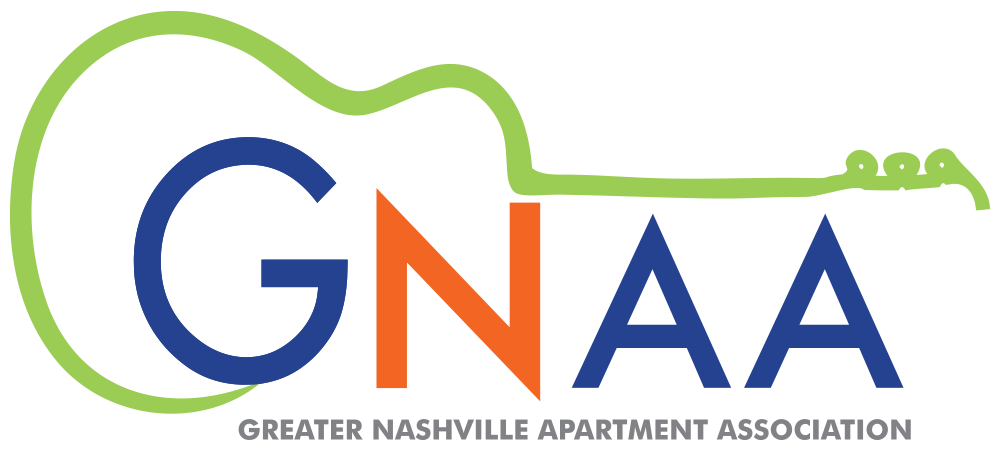GNAA Mentorship Program
DEVELOP, MOTIVATE, & INSPIRE
As a part of GNAA’s mission to be a support resource to the Nashville Multifamily Industry, the NextGen Committee launched the Mentorship Program in 2021.
The goal of the program is to leverage the vast experience of our membership network to help develop, motivate and inspire the next generation of multifamily leaders.
Mentorship specifically helps guide future leaders and seasoned professionals entering the multifamily industry. Mentees looking to expand their knowledge and/or professional network will now have the ability to connect more effectively with our industry leaders, feel welcomed and have a valuable advocate to turn to in their career development.
Mentor/Mentee Questionnaire
The below questionnaire is designed to help identify the most effective mentorship pairings, identify topics of interest, and provide a framework for potential goals and outcomes.
Click Here to Register for the Mentorship Program
FAQs of Mentorship Program
What Does a Mentor Do in the Mentoring Relationship?
It is encouraged that the mentor takes the initiative to make the initial contact with the mentee (as soon as the match is made) and elicit the goals and expectations of the mentee. A mentor listens carefully to their mentee’s goals, strengths, and struggles. Based on those goals, the mentor supports the mentee in meeting their goals through questioning, providing guidance and feedback, sharing their own experiences, and possibly connecting the mentee with other individuals or groups who could help.
Every mentoring relationship will unfold differently based on the individuals involved, but the purpose of mentoring is not to tell the mentee what to do, but to help support the mentee make their own informed decisions. The mentor should be supportive, not critical or negative, and should remember that everyone’s experiences and priorities are different.
Responsibilities of the Mentor
- Facilitate introduction meeting
**IMPORTANT NOTE**
It’s important to remember that face-to-face meetings with the mentee are nice but not critical to the success of the mentorship. Structured phone meetings can be just as effective
- Attend GNAA meetings/events to show leadership & participation in the industry
- Assist mentee with introductions and network development
- Be a valuable resource to the mentee on industry-related questions, issues, or concerns
- Provide updates and constructive feedback on the program to the GNAA Board
- Keep written notes in order to refer back to them to reconfirm goals, objectives, obstacles to the mentee over the course of the relationship
- It should go without saying, however, committing to a time and sticking to it is important to show the mentee that the mentor is committed
What Does a Mentee Do in the Mentoring Relationship?
A mentee communicates their goals and professional situation clearly to the mentor. They listen critically and objectively to the feedback and guidance received, keeping in mind that the mentor is speaking from their specific experience and priorities. It’s up to the mentee to ensure that the relationship is beneficial by keeping in contact, clearly communicating expectations, actively addressing problems, and asking for help when needed.
Responsibilities of the Mentee:
- Become an active member in the GNAA community by attending meetings, encouraging others to attend, and engaging with the membership base
- Utilize your mentor’s knowledge and experience to help advance areas of professional development specific to you
- Keep written notes of your mentor meetings, so you can refer back to them to check in on goal progress etc.
- Be aware of confidential discussions – some policies, procedures & discussions may only be suitable for your ears. Treat all discussions as personal and confidential, unless otherwise specified
- Start to think about becoming a future mentor!
Setting Goals and Expectations
Both the mentor and the mentee should start by discussing their expectations for the mentoring relationship. This should be clarified and documented as soon as possible because not understanding each other’s expectations for the relationship could lead to disappointment. A mentor could ask his or her mentee about what the mentee’s goals are and what they are looking for from the relationship. Mentees should be clear about what they hope to get out of the mentoring relationship, particularly with respect to goals, which will form the foundation of their work with the mentor. Subjects like frequency of meetings, availability, and modes of contact should be agreed upon from the start, and documented via email.
Frequency of Meetings
This is often a much-debated part of any mentorship program, and there is no hard and fast rule. Mentors and mentees should mutually agree, at the beginning of the mentorship, to the frequency of meetings and duration of mentorship needed in order to achieve the goals defined.
An example of the frequency of meetings could be:
Meeting 1
Meeting 2 – 3 months after meeting 1
Meeting 3 – 6 months after meeting 2
Meeting 4 – 6 months after meeting 3
At the six-month mark of the mentoring period, the mentor and mentee will be asked to complete a survey evaluating their experience with the mentoring program.
Confidentiality
Please keep in mind that the mentoring relationship requires trust from both parties, therefore communications between the mentee and mentor should be kept confidential unless discussed otherwise.
Conflict Resolution
Occasionally, the mentoring relationship doesn’t work out as planned. If this happens, the best way to approach it is to first address the issue with the mentor/mentee. If this does not rectify the problem, contact Ginny Johnson at GNAA – ginnyjohnson@gnaa.org
Selection of Mentee/Mentor
The GNAA NextGen Committee Chairs will make the match based on location, industry, and experience.
Introduction & Communications
An email with a mentorship SMART goal worksheet will be sent to both as an introduction. It is then up to the Mentor & Mentee to set up the initial contact.
Additional Questions or Concerns can be directed to the NextGen Committee Chairs: Alicia Jones with RPM Company and Rachel Stewart with Wheeler, Inc.
